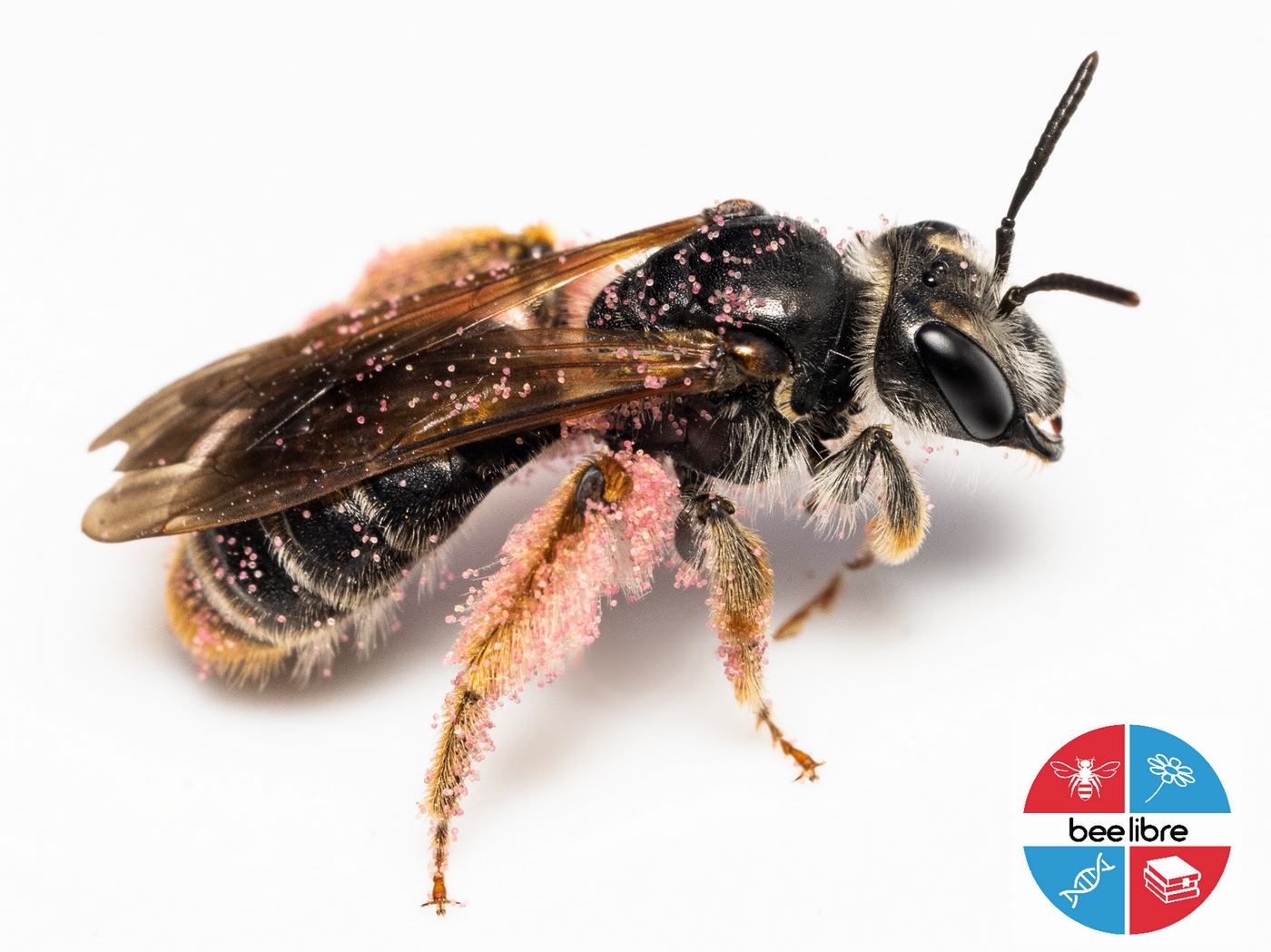
Contents
Summary
beelibre website online: https://beelibre.lu/
Wild bees are insect pollinators of fundamental relevance for both crops and wild plants. Their ecosystem services are valued in billions of euros and their disappearance could cause irreparable damage to biodiversity, plant reproduction, and human food production. Swift action must be taken to prevent further declines on regional wild bee biodiversity, but the success of effective conservation strategies relies heavily on our understanding of wild bee taxonomy and ecology. For this purpose, well curated reference material plays a vital role.
High quality descriptions are necessary for morphological wild bee identification in monitoring programs, voucher specimens from natural history collections are important to address open research questions and for general educational purposes, and validated DNA barcodes are crucial for molecular identification of morphologically undeterminable cryptic species or complicated taxa groups.
However, reliable reference data of all kinds for the wild bee fauna of Luxembourg is usually scattered and hard to find. Identification keys often lack images of appropriate resolution or regional relevance. Data regarding regional wild bee species diversity and distribution is spread among diverse sources, languages and media formats. Moreover, despite the growing volume of DNA barcodes available in the Barcode of Life Data Systems (BOLD), misidentifications and gaps in the regional reference library constrain the detection capacity of DNA based identification tools. Finally, the study of fine-scale ecological interactions between local pollinators and their host plants based on insect-focused approaches is hard to develop due to a general lack of curated reference samples. These obstacles restrain our understanding of local wild bees and our capacity to propose well informed conservation initiatives.
In the context of the ‘beelibre’ project (duration 04/2023 – 12/2024) led by the Fondation Faune- Flore (FFF), we propose the development of an open access, user-friendly online database for the storage of national wild bee data, grounding on the results of the “Atlas of the wild bee fauna of Luxembourg” project and the Hymenoptera collection of the MNHNL. This project aims to collate on a single multi-lingual website (beelibre.lu) relevant content concerning wild bee identification, sensibilisation and ecology, building four reference ‘libraries’:
- a database of high-quality images taken from live bees and museum specimens (for morpho-taxonomic identification and outreach)
- a bibliographic repository of all nationally relevant publications (for metadata analysis and knowledge exchange), incl. short summaries
- a pollen inventory pilot experiment aiming to uncover potential ecological interactions between local host flowering plants and their associated wild bee pollinators.
- a curated DNA barcode reference library of wild bee species from Luxembourg currently lacking reference material in BOLD systems (for molecular taxonomic identification).
All materials will be freely available to both researchers and the general public, socializing scientific knowledge to a wider audience and raising awareness on national pollinator biodiversity. With this initiative, we aim to provide a space that combines past efforts with current technology, building a platform that can be used to further assist and develop national conservation strategies protecting the wild bee fauna of Luxembourg.
Project status
- Proposal accepted by the Ministre de l’Environnement, du Climat et du Développement durable in the context of the funding line Appel à projets « Pollinisateurs ». Duration: 20 months (04/2023 – 12/2024).
- Host institution: Fondation faune-flore @ Centre de recherche scientifique, Musée national d’histoire naturelle.
- Partners: MECDD
Funding
With financial support from the Fonds pour la protection de l’environnement

Contact
- Alexander Weigand, Department of Zoology
phone: (+352) 462240 212
alexander.weigand@mnhn.lu
National Museum of Natural History (MNHNL)
Research center
Life science department
25, rue Münster
L-2160 Luxembourg
Publications
- S Reverté, et al. (2024). National records of 3000 European bee and hoverfly species: A contribution to pollinator conservation. Insect conservation and diversity 16 (6), 758-775.